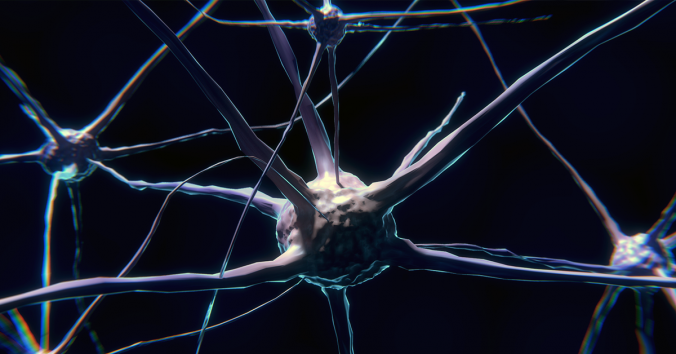We face challenges every day. Some are more demanding than others, but it seems that there is not a day without some problem to handle. Unless they are too big to manage, problems are like the engines of our lives. They push us to always go beyond wherever we are and whatever we do, to look for new possibilities, to build new opportunities. In other words: problems make us stay alive.
The same is true for science and philosophy. There is a constant need to face new challenges. Consciousness research is no exception. There are, of course, several problems in the investigation of consciousness. However, one problem has emerged as the big problem, which the Australian philosopher David Chalmers baptised “the hard problem of consciousness.” This classical problem (discussed even before Chalmers coined this expression, actually since the early days of neuropsychology, notably by Alexander Luria and collaborators) refers to the enigma of subjective experience. To adapt a formulation by the philosopher Thomas Nagel, the basic question is: why do we have experiences of what it is like to be conscious, for example, why do we experience that pain and hunger feel the way they do?
The hard problem has a double nature. On the one hand, it refers to what Joseph Levine had qualified as an explanatory gap. The strategy to identify psychological experiences with physical features of the brain is in the end unable to explain why experiences are related to physical phenomena at all. On the other hand, the hard problem also refers to the question if subjective experience can be explained causally or if it is intrinsic to the world, that is to say: fundamentally there, from the beginning, rather than caused by something more primary.
This double nature of the problem has been a stumbling block in the attempt to explain consciousness. Yet in recent years, the hardness of the problem has been increasingly questioned. Among the arguments that appear relevant in order to soften the problem, there is one that I think merits specific attention. This argument describes consciousness as a cultural concept, meaning that both the way we conceive it and the way we experience it depend on our culture. There are different versions of this argument: some reduce consciousness as such to a cultural construction, while other, less radical arguments stress that consciousness has a neurological substrate that is importantly shaped by culture. The relevant point is that by characterising consciousness as a cultural construction, with reference both to how we conceptualise it and how we are conscious, this argument ultimately questions the hardness of the hard problem.
To illustrate, consider anthropological and neuroscientific arguments that appear to go in the direction of explaining away the hard problem of consciousness. Anthropological explanations give a crucial role to culture and its relationship with consciousness. Humans have an arguably unique capacity of symbolisation, which enables us to create an immaterial world both through the symbolisation of the actual world and through the construction of immaterial realities that are not experienced through the senses. This human symbolic capacity can be applied not only to the external world, but also to brain activity, resulting in the conceptual construction of notions like consciousness. We symbolise our brain activity, hypostatise our conscious activities, and infer supposedly immaterial causes behind them.
There are also neuroscientific and neuropsychological attempts to explain how consciousness and our understanding of it evolved, which ultimately appear to potentially explain away the hard problem. Attention Schema Theory, for instance, assumes that people tend to “attribute a mysterious consciousness to themselves and to others because of an inherently inaccurate model of mind, and especially a model of attention.” The origin of the attribution of this mysterious consciousness is in culture and in folk-psychological beliefs, for instance, ideas about “an energy-like substance inhabiting the body.” In other words, culturally based mistaken beliefs derived from implicit social-cognitive models affect and eventually distort our view of consciousness. Ultimately, consciousness does not really exist as a distinct property, and its appearance as a non-physical property is a kind of illusion. Thus, the hard problem does not originate from real objective features of the world, but rather from implicit subjective beliefs derived from internalised socio-cultural models, specifically from the intuition that mind is an invisible essence generated within an agent.
While I do not want to conceptually challenge the arguments above, I here only suggest potential ethical issues that might arise if we assume the validity of those arguments. What are the potential neuroethical implications of these ideas of consciousness as culturally constructed? Since the concept of consciousness traditionally played an important role in ethical reasoning, for example, in the notion of a person, questioning the objective status of conscious experience may have important ethical implications that should be adequately investigated. For instance, if consciousness depends on culture, then any definition of altered states of consciousness is culturally relative and context-dependent. This might have an impact on, for example, the ethical evaluation of the use of psychotropic substances, which for some cultures, as history tells us, can be considered legitimate and positive. Why should we limit the range of states of consciousness that are allowed to be experienced? What makes it legitimate for a culture to assert its own behavioural standards? To what extent can individuals justify their behaviour by appealing to their culture?
In addition, if consciousness (i.e., the way we are conscious, what we are conscious of, and our understanding of consciousness) is dependent on culture, then some conscious experiences might be considered more or less valuable in different cultural contexts, which could affect, for example, end-of-life decisions. If the concept of consciousness, and thus its ethical relevance and value, depends on culture, then consciousness no longer offers a solid foundation for ethical deliberation. Softening the hard problem of consciousness might also soften the foundation of what I defined elsewhere as the consciousness-centred ethics of disorders of consciousness (vegetative states, unresponsive wakefulness states, minimally conscious states, and cognitive-motor dissociation).
Although a cultural approach to consciousness can soften the hard problem conceptually, it creates hard ethical problems that require specific attention. It seems that any attempt to challenge the hard problem of consciousness results in a situation similar to that of having a blanket that is too short: if you pull it to one side (in the direction of the conceptual problem), you leave the other side uncovered (ethical issues based on the notion of consciousness). It seems that we cannot soften the hard problem of consciousness without the risk of relativizing ethics.

Written by…
Michele Farisco, Postdoc Researcher at Centre for Research Ethics & Bioethics, working in the EU Flagship Human Brain Project.
We like challenging questions






Recent Comments